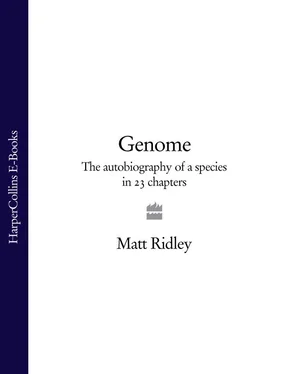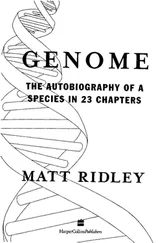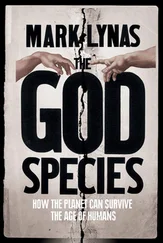The autobiography of a species in 23 chapters


William Collins
An imprint of HarperCollins Publishers Ltd.
1 London Bridge Street
London SE1 9GF
www.harpercollins.co.uk
This edition published by Harper Perennial 2004
First published in Great Britain in 1999 by Fourth Estate Limited
Copyright © Matt Ridley 1999
Matt Ridley asserts the moral right to be identified as the author of this work.
A catalogue record for this book is available from the British Library.
The author is grateful to the following publishers for permission to reprint brief extracts: Harvard University Press for four extracts from Nancy Wexler’s article in The code of codes , edited by D. Kevles and R. Hood (pp. 62 – 9); Aurum Press for an extract from The gene hunters by William Cookson (p. 78); Macmillan Press for extracts from Philosophical essays by A. J. Ayer (p. 338) and What remains to be discovered by J. Maddox (p. 194); W. H. Freeman for extracts from Narrow roads of gene land by W. D. Hamilton (p. 131); Oxford University Press for extracts from The selfish gene by Richard Dawkins (p. 122) and Fatal protein by Rosalind Ridley and Harry Baker (p. 285); Weidenfeld and Nicolson for an extract from One renegade cell by Robert Weinberg (p. 237). The author has made every effort to obtain permission for all other extracts from published work reprinted in this book.
All rights reserved under International and Pan-American Copyright Conventions. By payment of the required fees, you have been granted the non-exclusive, non-transferable right to access and read the text of this ebook on-screen. No part of this text may be reproduced, transmitted, downloaded, decompiled, reverse engineered, or stored in or introduced into any information storage and retrieval system, in any form or by any means, whether electronic or mechanical, now known or hereinafter invented, without the express written permission of HarperCollins ebooks
HarperCollins Publishers has made every reasonable effort to ensure that any picture content and written content in this ebook has been included or removed in accordance with the contractual and technological constraints in operation at the time of publication
Source ISBN: 9781857028355
Ebook Edition © JUNE 2010 ISBN: 9780007381845
Version: 2017-04-07
‘This is a spectacular book.’ Spectator
‘This is as absorbing a read as any science-fiction novel but it is dealing with the horizon of real knowledge. Barely a page passes without a new morsel of knowledge brought with almost breathless enthusiasm from academic journals by Matt Ridley.’ Sunday Herald
‘Ridley is a raconteur, skilled at telling vivid stories of discoveries and amassing facts.’ New Scientist
‘ Genome offers one of the most perceptive and lively accounts of what we are learning – and might find out in the future – about the book of man.’ Prospect
‘A lucid and exhilarating romp through our human chromosomes that lets us see how nature and nurture combine to make us human.’ James Watson, author of The Double Helix
‘ Genome , like the best of popular science, is both an exciting scientific exploration and a sheer pleasure to read.’ Yorkshire Post
‘Readers will find this book difficult to put down.’ New Humanist
Books of the Year 1999
‘Matt Ridley’s Genome lives up to the high standard of The Red Queen and The Origins of Virtue. This makes it very good indeed, for Ridley is a leader among today’s highly successful scientist authors. Intelligence, Disease, Immortality, Eugenics…23 topics of particular human interest are tied to our 23 chromosomes. The 23 chapters brim with Ridley’s customary stylish wit and cool insouciance. The book appears appropriately in the closing year of Watson and Crick’s century, which is about to culminate in the finished Human Genome Project.’ Richard Dawkins, Guardian
‘Matt Ridley’s Genome is as elegant, as unpatronising and lucid as a layman could desire. Blessed are the users of plain language, for they shall be read.’ Miranda Seymour, Independent
‘ Genome makes accessible a subject that is far too important to be left to the boffins and the doctors. It’s elegant, lucid, formidably well informed and, above all, human.’ Jane Ridley, Spectator
For my parents and my children
Cover Page
Title Page
Copyright
Praise
Preface
Chromosome 1 - Life
Chromosome 2 - Species
Chromosome 3 - History
Chromosome 4 - Fate
Chromosome 5 - Environment
Chromosome 6 - Intelligence
Chromosome 7 - Instinct
Chromosome 8 - Conflict
Chromosome 9 - Self-Interest
Chromosome 10 - Disease
Chromosome 11 - Stress
Chromosome 12 - Personality
Chromosome 13 - Self-Assembly
Chromosome 14 - Pre-History
Chromosome 15 - Immortality
Chromosome 16 - Sex
Chromosome 17 - Memory
Chromosome 18 - Death
Chromosome 19 - Cures
Chromosome 20 - Prevention
Chromosome 21 - Politics
Chromosome 22 - Eugenics
Chromosome 23 - Free Will
Bibliography and Notes
Index
Acknowledgements
Keep Reading
About the Author
Also By
About the Publisher
The human genome – the complete set of human genes – comes packaged in twenty-three separate pairs of chromosomes. Of these, twenty-two pairs are numbered in approximate order of size, from the largest (number 1) to the smallest (number 22), while the remaining pair consists of the sex chromosomes: two large X chromosomes in women, one X and one small Y in men. In size, the X comes between chromosomes 7 and 8, whereas the Y is the smallest.
The number 23 is of no significance. Many species, including our closest relatives among the apes, have more chromosomes, and many have fewer. Nor do genes of similar function and type necessarily cluster on the same chromosome. So a few years ago, leaning over a lap-top computer talking to David Haig, an evolutionary biologist, I was slightly startled to hear him say that chromosome 19 was his favourite chromosome. It has all sorts of mischievous genes on it, he explained. I had never thought of chromosomes as having personalities before. They are, after all, merely arbitrary collections of genes. But Haig’s chance remark planted an idea in my head and I could not get it out. Why not try to tell the unfolding story of the human genome, now being discovered in detail for the first time, chromosome by chromosome, by picking a gene from each chromosome to fit the story as it is told? Primo Levi did something similar with the periodic table of the elements in his autobiographical short stories. He related each chapter of his life to an element, one that he had had some contact with during the period he was describing.
I began to think about the human genome as a sort of autobiography in its own right – a record, written in ‘genetish’, of all the vicissitudes and inventions that had characterised the history of our species and its ancestors since the very dawn of life. There are genes that have not changed much since the very first single-celled creatures populated the primeval ooze. There are genes that were developed when our ancestors were worm-like. There are genes that must have first appeared when our ancestors were fish. There are genes that exist in their present form only because of recent epidemics of disease. And there are genes that can be used to write the history of human migrations in the last few thousand years. From four billion years ago to just a few hundred years ago, the genome has been a sort of autobiography for our species, recording the important events as they occurred.
Читать дальше














